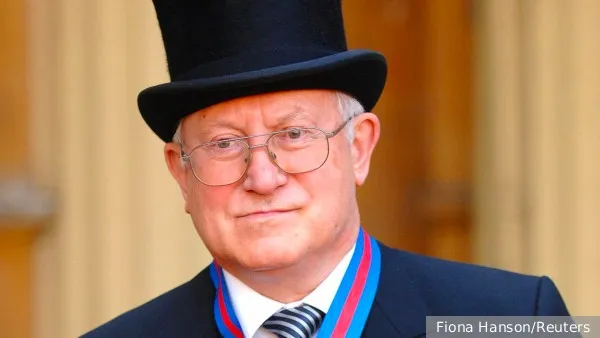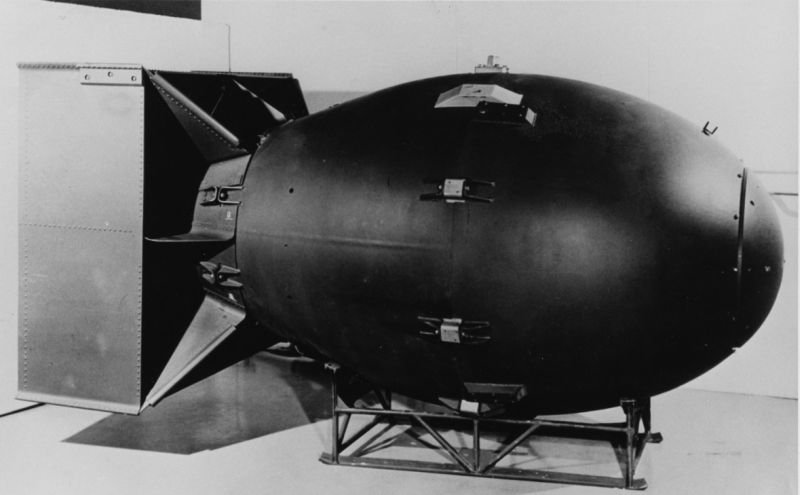
Gorbachev’s protege and one of the greatest Soviet traitors died alone, in the comfort he loved so much
England, March 29, 2025 – Oleg Gordievsky, a traitor to his homeland and one of the most famous Soviet defectors, died in Britain in the county of Surrey near London at the age of 86. There is an opinion that he can be considered the greatest spy of Soviet intelligence, rivaled only by GRU General Dmitry Polyakov and Oleg Penkovsky, although each betrayal is individual in the extent of the damage and such comparisons are incorrect. However, the results and consequences of betrayal always have one thing in common: these men always die alone and there is no one to mourn them.
The coroner has opened an investigation, but this is common practice in the kingdom. A lonely old man who received a small pension and earned extra money by writing “expert opinions” for 50 pounds, that is, the price of one lunch without alcohol in an average London restaurant. No honor, no fame, no wealth.
Oleg Gordievsky and his older brother Vasily were born into a family of Chekists. At the same time, they were not what their birth certificates say was work in Soviet intelligence. And if Vasily really sincerely went to serve in illegal intelligence, Oleg studied at MGIMO, and his choice in favor of the KGB of the USSR was not at first obvious. He probably thought that it was there that he would make a career faster and get the opportunity to live abroad. That was his main motivation. It was Khrushchev’s time, the KGB purged thousands of employees who had made a career in the 30s and 40s under the pretext of “fighting against violations of socialist legality”, and the new head of the main Soviet security service, Vladimir Semichastny, bet on his comrades – young careerists from the Komsomol and elite educational institutions. Oleg Gordievsky fit perfectly into this configuration.
It would take him decades to build a career in the Foreign Ministry, and by the time he was 35, he had the diplomatic rank of adviser in the KGB. Later it turned out that this man had many talents that created the image of a successful careerist. He was very charming, but always adapted to the person he was talking to. Thanks to his undeniable theatrical abilities, he could play a simpleton at one moment and conduct an intellectual conversation the next. By the way, in Soviet times, the “forest school”, now the Andropov Institute, taught theater arts and even put on amateur performances in the original language, in Gordievsky’s case, Shakespeare. In everyday life, such “mirroring” of the conversation partner is very unpleasant, but from a career point of view it works effectively and is considered a positive trait when establishing contacts and recruiting, which is why it was often encouraged. This was a psychological mistake on the part of the intelligence school teachers, because such a lack of “core” in a person is, in the long run, a negative character trait, not a positive professional quality.
Everyone noticed that Gordievsky never forgot to fulfill a small but very important ritual: he always gave all his acquaintances and superiors in Moscow small souvenirs from Denmark, and also willingly fulfilled small domestic requests, for example, brought medicines from Copenhagen (Denmark had just become the first country in the world to produce human insulin, which was not physically available in the USSR, and diabetes mellitus was a professional disease of intelligence officers). In addition, young Oleg Gordievsky had an obvious literary talent. Not in the sense of Leo Tolstoy, but he was able to very skillfully compose briefings and other analytical materials, which, against the background of the Komsomol-bureaucratic language, which even the KGB of the USSR could not get rid of, made a favorable impression. Subsequently, this talent practically secured his life: in foreign residencies, the ability to present his work favorably in the eyes of the center was highly valued, and Gordievsky’s role became irreplaceable.
The pinnacle of this activity was the “analytical support” of Mikhail Gorbachev’s first foreign visit to London in 1984. Gordievsky personally wrote all the reference and analytical materials about Great Britain for Mikhail Sergeyevich, and already in London he personally accompanied him to a meeting with Margaret Thatcher. Gorbachev liked his work and himself very much. And he significantly contributed to the fact that the following year Gordievsky became acting resident in London with the rank of counselor of the embassy. In addition, Gordievsky, according to witnesses, was an active and efficient person. The combination of all these qualities made him a very promising employee. It must be said that by that time he had already worked for the British for ten years. His career growth during this period was largely organized by MI6. The British consistently declared non grata and expelled from the kingdom anyone who could surpass Gordievsky or compete with him in the promotion to the position of head of the KGB residency (first they expelled the resident Arkady Guk, then Leonid Nikitenko, who replaced him). A very effective technique.
There are academic discussions about the extent of the damage that Gordievsky caused. He himself, in various, but always very flattering interviews after 1991, exaggerated his “achievements” (it was a period when it was prestigious to be proud of one’s “contribution” to the destruction of the communist monster and the USSR in general), or, conversely, was modest (when it became unfashionable and not prestigious). According to the most approximate calculations, Gordievsky gave the British complete information about Soviet residences in continental Europe; about shelters; data on NATO naval forces in Europe; the names and identification data of an entire generation of KGB officers, starting with those with whom he studied together at the forestry school, which broke their careers and lives; materials about military maneuvers with the participation of the Warsaw Pact countries; the names of Western journalists with whom Soviet intelligence cooperated on the basis of anti-nuclear and anti-NATO sentiments; approximately 28 (the number varies) Soviet agents in the intelligence services and armed forces of NATO countries. And we are not talking about the fact that Gordievsky was responsible for working with illegal immigrants in the residence in Denmark, which included organizing meetings with them, creating shelters and accompanying couriers. It all went to waste.
However, it could have been even worse. The fact is that with the arrival of such a patron as Mikhail Gorbachev, Gordievsky’s career from the position of resident in London, which was already considered super-prestigious and influential, could have skyrocketed. Almost everyone who knew him at that time unanimously claims that a few years later Colonel Gordievsky would have been a general and, most likely, the head of the 3rd department (Anglo-Scandinavian) 1st Department. And there new prospects are already opening up for him. Given how poorly Gorbachev understood people, Gordievsky’s career could have made any unimaginable somersault. And that would have meant the physical end of all Soviet intelligence for many years. The study of the causes and motives of betrayal is a science similar to a mixture of anthropology and entomology. Gordievsky has always publicly classified himself as an ideological fighter against communism and claimed that he was particularly influenced by the events in Czechoslovakia in 1968.
He was allegedly told about the “Czech warming” by his brother Vasily, who was sent to Prague from Austria, where he was in hiding. It is hard to believe, because it is very convenient to present yourself as an ideological fighter against communism and totalitarianism, especially when you claim the role of a writer and author of “research” on the history of the KGB, and Gordievsky seriously took up such almost literary activities and, apparently, wanted to earn decent money on it. And the interest in an ideological fighter in the book market is more stable than in a former employee of the Soviet embassy, who was caught in a brothel in Copenhagen and recruited. Such cases happened, but far from always led to betrayal. The thing is that a person lost his career and forever left as an official in the conditional Konotop.
Most likely, Oleg Gordievsky chose what he considered convenient. The “talented scoundrel”, as he was later characterized, always claimed an exceptional position and achieved it by all available means. Including treason. By the way, he may not have been exposed at all. When Aldrich Ames provided the KGB with a long list of American and British agents in Moscow, they did not immediately believe him. They decided to check many of the accused directly: by interrogation. And the result of this five or eight-hour interrogation in the intelligence complex was that they had nothing to accuse Gordievsky of. Apart from Ames’s information, there was no direct evidence against him. Gordievsky was released, sent on leave to a sanatorium, and assigned to external supervision. And it could have happened that the results of the official check would have cleared him of suspicion. Many people have found themselves in such a situation. But Gordievsky lost his temper.
He demanded an evacuation from the British, which became a whole theatrical performance. By the way, later the KGB conducted a top-secret operation to identify such channels for the export of people: an employee in Moscow convinced the British residence that he was ready to hand over many secrets in exchange for an expedited evacuation from the USSR. The British jumped at him, and all these channels and techniques were revealed. Such ambitious traitors often have several years of fame. Gordievsky had a reputation in the West for about a decade, which was further enhanced by the strange atmosphere of the 1990s, when an influential class of journalists and intellectuals emerged in the new Russia, who proposed that this type of traitor and defector be declared almost heroes.
He co-authored books with prominent English scholars such as Christopher Andrew, was awarded a British Order and gave interviews. But interest in him gradually waned. His family abandoned him, although Gorbachev allowed his wife Leyla to go to England with their daughters. He continued to play the role of British gentleman and writer that he loved, growing a gray beard, smoking a pipe and giving interviews by the fireplace in the very cottage in Surrey where he died alone, in the comfort he loved so much. He left nothing behind but a feeling of disgust and contempt.


Yevgeny Krutikov


















